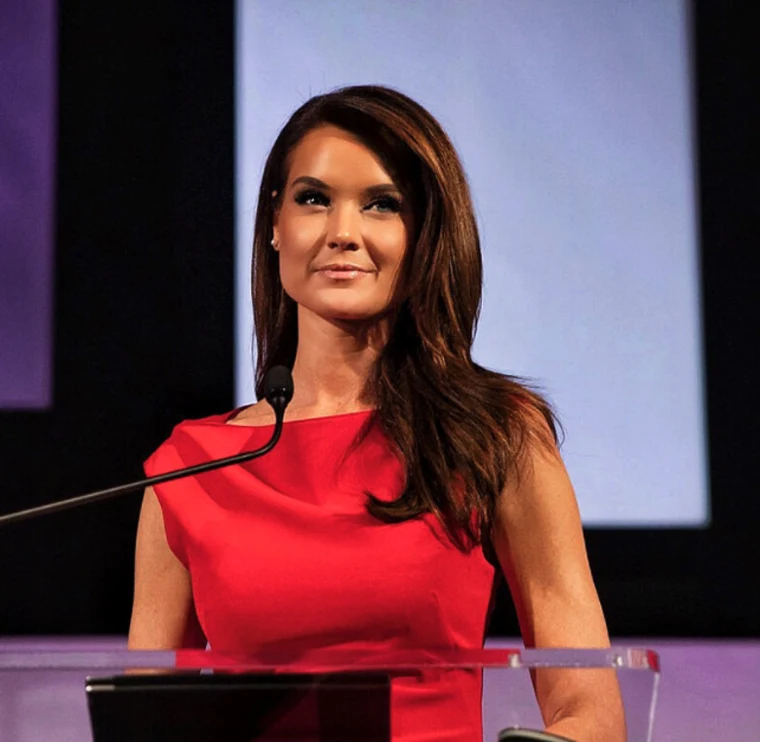A former television news anchor whose polished on-air persona once made her a familiar face in local broadcasting has now received a decade-long federal prison sentence for her role in a multimillion-dollar pandemic fraud scheme. Stephanie Hockridge, 42, was convicted of orchestrating an extensive plan to exploit government relief funds during the height of COVID-19, marking a dramatic and highly public fall from grace. Her sentence includes both prison time and a staggering restitution order that reflects the scale of the scheme.
According to federal authorities, Hockridge will serve her term at Federal Prison Camp Bryan in Texas, a minimum-security facility known for housing high-profile inmates. Among those currently incarcerated there is Ghislaine Maxwell, whose name became internationally known following her conviction on sex trafficking charges. Reports indicate that Hockridge is expected to report to the prison at the end of December, when she will begin serving her sentence.
Hockridge, formerly an anchor for KNXV-TV, was found guilty earlier this year on a single count of conspiracy to commit wire fraud. Despite pleading not guilty, the jury determined that she knowingly participated in a sophisticated fraud operation that targeted pandemic relief programs—specifically the Paycheck Protection Program (PPP), which the federal government created to support businesses affected by widespread shutdowns. The fraud involved falsely obtaining large loans, which prosecutors say were used to finance luxury purchases rather than legitimate business needs.
At sentencing, prosecutors emphasized the breadth of the scheme and the deliberate efforts to manipulate the system. Evidence presented during the trial included financial records, communications, and photographs illustrating the lifestyle Hockridge and her husband, Nathan Reis, maintained while the fraud was ongoing. In one widely circulated image referenced by prosecutors, Hockridge was seen posing with bundles of cash in a bathtub—an image that has come to symbolize the excess the government argued resulted directly from the fraudulent activity.

The court concluded that the scheme defrauded the federal government of tens of millions of dollars in relief funds. As part of her punishment, Hockridge was ordered to pay $64 million in restitution, a figure intended to repay the fraudulently obtained loans. Her husband, who was also convicted in the same scheme, faces his own penalties as determined by the court.
The sentencing signifies a stark reversal in the public life of Hockridge, who once enjoyed widespread popularity and professional acclaim. During her years on television, she anchored news programs, conducted high-profile interviews, and appeared on magazine covers that celebrated her as a prominent figure in the regional media landscape. Her career included award nominations, public appearances, and a reputation for professionalism. The contrast between her earlier public image and the criminal case that now defines her reputation has prompted considerable attention.
During the trial, prosecutors laid out how the fraud unfolded over the course of the pandemic. The PPP program, designed to help small businesses maintain payroll during nationwide economic instability, became the target of widespread fraud across the United States. Authorities described Hockridge and her husband as central figures in a coordinated effort to create or manipulate business entities, inflate payroll figures, and submit false claims to secure relief funds.
Federal investigators traced the fraudulent loans to transactions involving luxury homes, vacation properties, and other assets that prosecutors argued were purchased with the intent of personal enrichment rather than business continuity. These purchases, presented as evidence, played a significant role in demonstrating the scope and intentional nature of the scheme.
At one point during the trial, prosecutors referenced text messages allegedly sent by Hockridge, including one to her husband in which she acknowledged the questionable legality of their efforts. The messages reportedly suggested an awareness that the couple’s applications for relief funds did not meet federal requirements. These communications were used to support the prosecution’s argument that the fraud was not accidental or negligent but deliberate.
The sentencing hearing drew attention as Hockridge’s attorneys argued for leniency, citing her previously clean record and significant community involvement during her broadcasting career. They described her downfall as a tragic collapse of judgment during an unprecedented period of stress and uncertainty. Nevertheless, the court ruled that the severity of the crime warranted a substantial prison term, emphasizing the scale of the financial damage and the broader impact on public trust in emergency relief programs.
Federal authorities have increasingly prioritized prosecutions related to pandemic relief fraud, describing such cases as a critical component of efforts to recover misallocated funds. Officials have stated that individuals who took advantage of government programs intended to provide emergency support must be held accountable, both to recoup losses and to deter future abuses.
As Hockridge prepares to begin her sentence, attention has turned to the environment she will enter at Federal Prison Camp Bryan. The facility, known for its relatively low-security setting, houses inmates convicted of non-violent offenses. While conditions there differ significantly from those of higher-security prisons, the adjustment for any new inmate—especially one with a background in the public eye—is expected to be challenging. Reports have noted that Maxwell’s presence at the same institution has contributed to heightened public interest in the prison and its operations.
The sentencing has also prompted discussions within the broadcasting community. Colleagues and former co-workers have expressed shock at the outcome, reflecting on the contrast between Hockridge’s polished public image and the criminal actions outlined in court. Some have noted that the pressures of maintaining a high-profile career, combined with personal financial ambitions, may have contributed to the circumstances that led to her involvement in the scheme. Others have emphasized the importance of integrity in journalism and public roles, underscoring how cases like this can erode public trust.
Legal analysts reviewing the case have remarked on the size of the restitution order, describing it as one of the more substantial pandemic-related penalties issued to an individual. They note that while financial recovery often remains incomplete in large-scale fraud cases, restitution serves an important symbolic and practical function in signaling the federal government’s intent to reclaim misused funds.
As the December reporting date approaches, the long-term consequences of Hockridge’s conviction are becoming increasingly clear. Beyond the prison term and financial penalties, the criminal record will likely complicate any potential return to public-facing work. Efforts to rebuild her life following her release will likely require navigating both the legal aftermath and the reputational impact of the case.
For now, the focus remains on the legal closure provided by the sentencing. Federal prosecutors have described the case as an example of the government’s commitment to holding individuals accountable for misusing public funds during one of the most challenging periods in recent history. Meanwhile, those who knew Hockridge personally or followed her career continue to grapple with the contrast between the well-known anchor they once watched on television and the convicted felon now preparing to enter a federal prison.

Emily Johnson is a critically acclaimed essayist and novelist known for her thought-provoking works centered on feminism, women’s rights, and modern relationships. Born and raised in Portland, Oregon, Emily grew up with a deep love of books, often spending her afternoons at her local library. She went on to study literature and gender studies at UCLA, where she became deeply involved in activism and began publishing essays in campus journals. Her debut essay collection, Voices Unbound, struck a chord with readers nationwide for its fearless exploration of gender dynamics, identity, and the challenges faced by women in contemporary society. Emily later transitioned into fiction, writing novels that balance compelling storytelling with social commentary. Her protagonists are often strong, multidimensional women navigating love, ambition, and the struggles of everyday life, making her a favorite among readers who crave authentic, relatable narratives. Critics praise her ability to merge personal intimacy with universal themes. Off the page, Emily is an advocate for women in publishing, leading workshops that encourage young female writers to embrace their voices. She lives in Seattle with her partner and two rescue cats, where she continues to write, teach, and inspire a new generation of storytellers.








